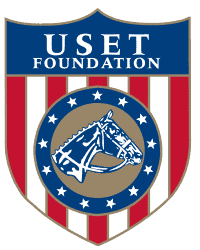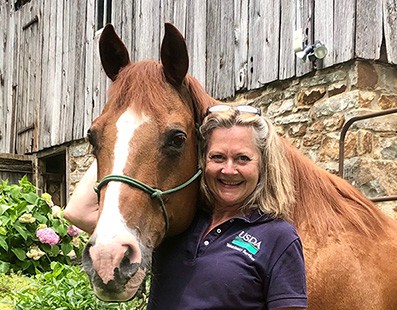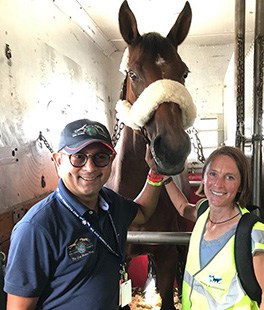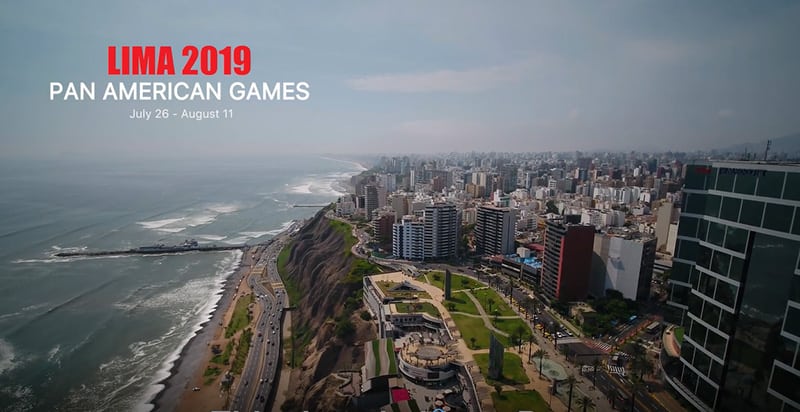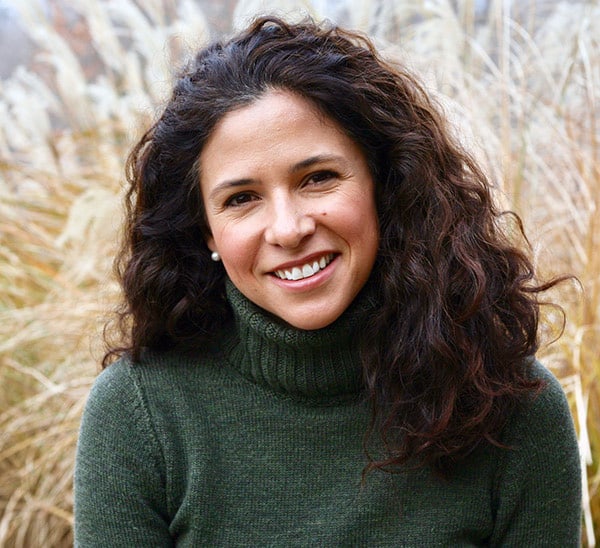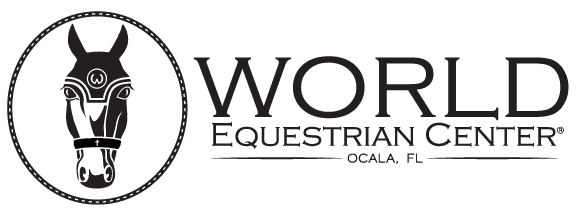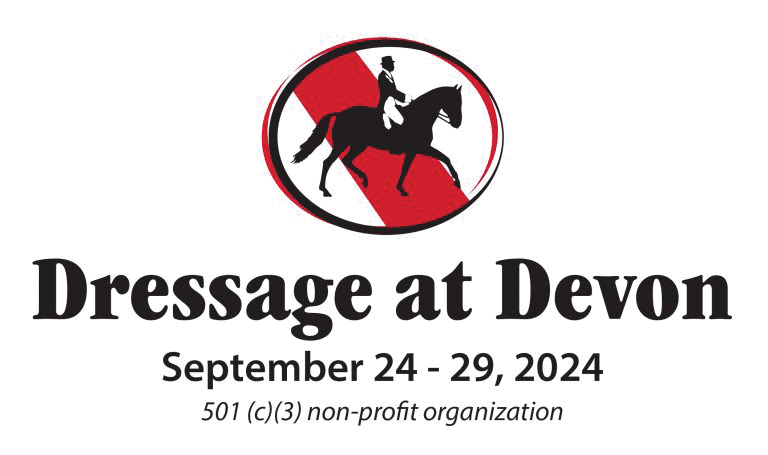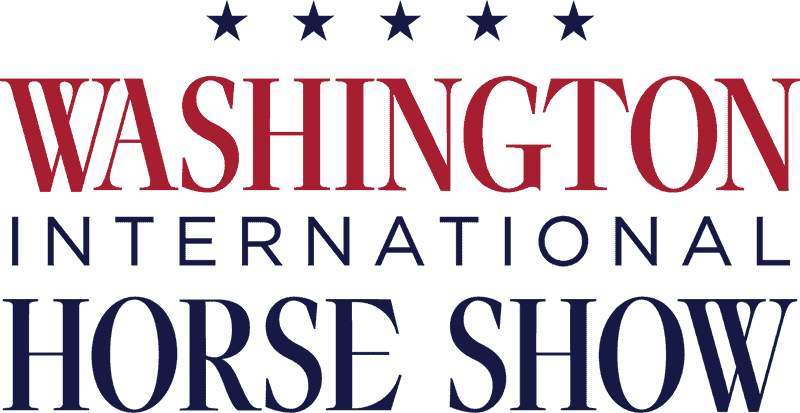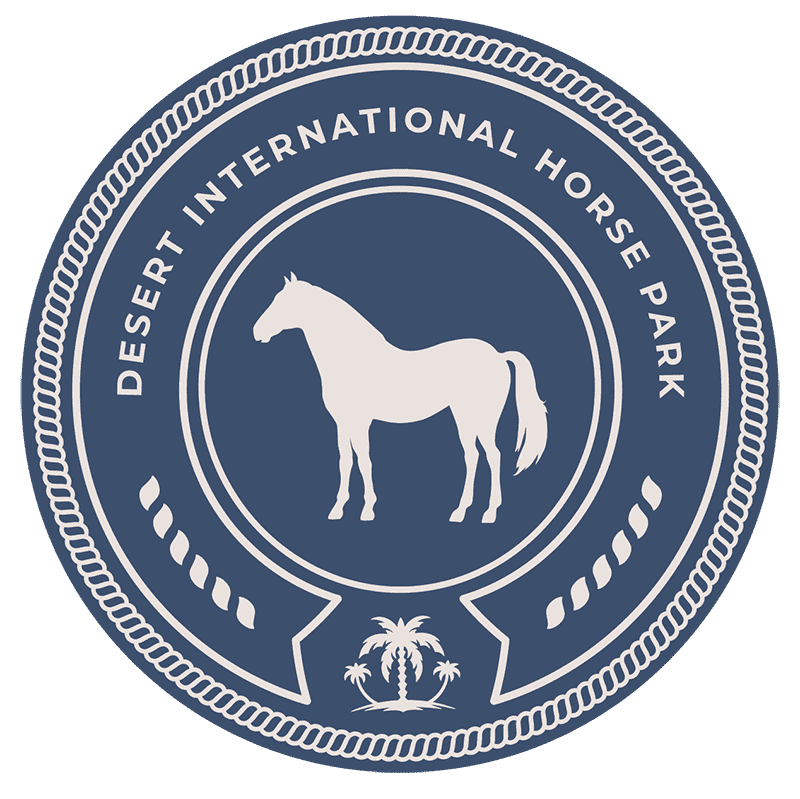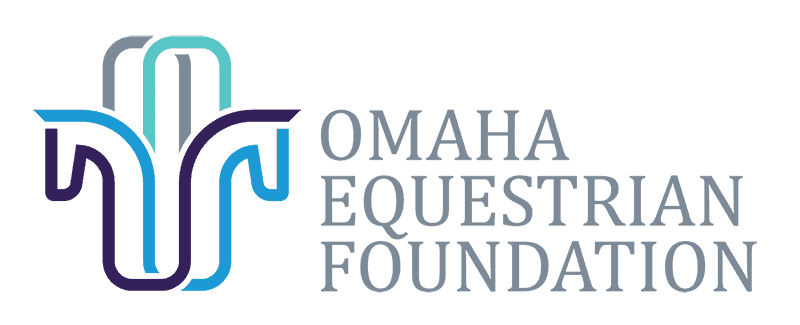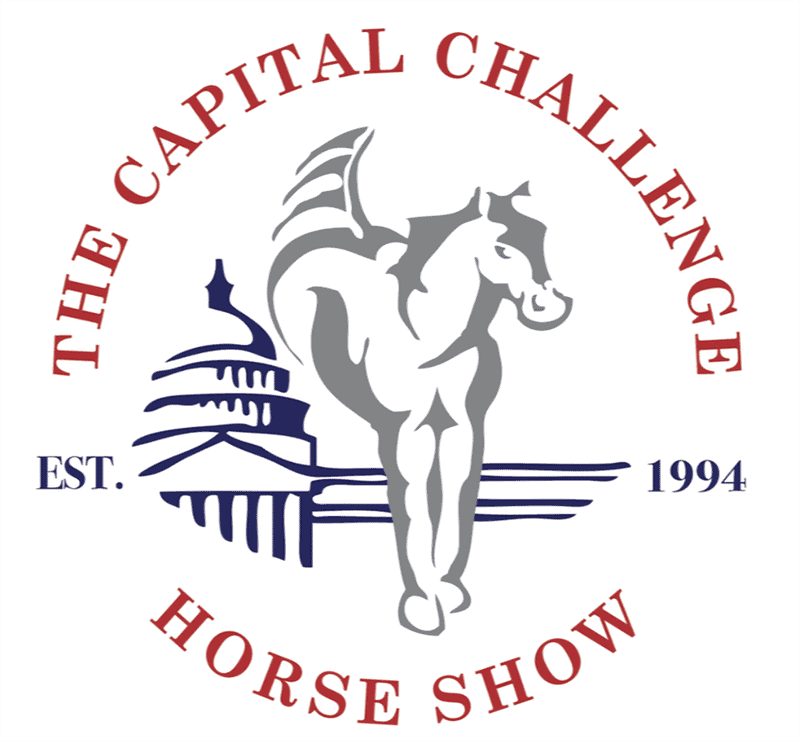Paperwork, quarantine, and vaccines, oh my! … USDA veterinarian AC Welsch is on the case, making sure your Team’s equine athletes are ready for the Pan American Games.
Imagine this chance of a lifetime: Your hard work has paid off. You and your equine partner have earned the chance to compete in the Pan American Games in Lima, Peru! It’s incredibly exciting—but there are so many logistics to take care of, especially for your trusty steed. Any small detail overlooked could cost you your opportunity to compete.
Luckily, as a Team USA athlete, you’d have US Equestrian and U.S. Equestrian Team Foundation supporters behind you. You’d also have pros like Anna “AC” Welsch, a veterinarian for the United States Department of Agriculture (USDA) on your side. AC helps equestrian athletes and owners navigate the complexities of exporting a horse to a place like Lima, Peru.
Born in Mexico and raised in New England, AC fell in love with animals—and science—at a young age. That passion led her to pursue a career in veterinary science. After receiving degrees from the University of Massachusetts, Oklahoma State University, and even a Master’s degree in tropical animal diseases from a veterinary school in Paris, AC returned to the United States.
And, for the past 27 years, AC has worked for the USDA in Robbinsville, New Jersey. “I started out as a field veterinarian and now I’m the Assistant Area Veterinarian in Charge of the state,” she says. As part of the USDA APHIS Veterinary Services office, AC is responsible for overseeing the health of domestic livestock in New Jersey and assisting with animals traveling overseas—including your Team’s horses.
Although the Pan American Team is leaving from Miami, AC works frequently with your Team to help the owners navigate the intensive process. “It’s always such a pleasure to work with the U.S. Equestrian Team,” says AC.
“There are so many moving parts that need to be coordinated when preparing for these competitions,” says AC.
In fact, the preparation for international travel begins weeks before the departure date. Just like humans traveling abroad, horses are required to have specific vaccines depending on their destination. The vaccines are time-sensitive, which is an added stress for many owners. “If one vaccination blood test, or treatment isn’t done in the time that’s required,” says AC, “then the horse will not be able to travel.”
In addition to vaccinations and medical examinations, all horses traveling abroad must go through an extensive isolation and quarantine period. And, one thing many people don’t realize: horses traveling together must go into their isolation period at the same time. “If one horse is late, that affects the rest of the horses in the group,” says AC.
Preparations start before the horses even arrive at the quarantine facility. “Before the horses enter, all the barns and stalls are must be cleaned, power-sprayed with a and disinfectant,” explains AC. Even the food and bedding for the horses is protected in the barn and may not come into contact with any other animals or products. The trailers transporting the horses from their original destinations must also be cleaned and disinfected prior to arriving at the USDA approved quarantine facility.
For every individual involved in the quarantine process, hygiene is paramount. “The horse handlers and the truck driver all need to have showered,” says AC. “When they handle the horses, they have to wear protective clothing so they don’t spread any germs to the horses that are being exported.”
As with any kind of international travel—human or equine—the paperwork process is lengthy and often confusing. Each horse has its own passport and a variety of health certificates. And, just like when you travel abroad, some countries may require additional paperwork. “All the passports and health certificates must be 100% in order or the horses could be refused entry,” says AC. “That’s always a big job. We have to go through the paperwork two or three times.”
And, there are other event specific considerations, like the regulations agreed upon between the USDA and its Peruvian counterpart for this year’s Pan American Games. And there are destination-specific health concerns to take into account. For example, although screw worm has been eradicated in the United States, it’s still a concern in Peru. “So, the horses will be examined very closely to make sure there are no screw worm larvae on them when they return,” explains AC.
AC notes that the many rules and regulations that figure into sending and bringing back the horses aren’t designed to make things challenging for the owners — rather, it’s all intended to protect our Team’s horses. “We ensure the quality and health of the animals leaving the United States, and we safeguard our national herd by making sure that imported animals, even U.S. animals returning back to the United States, don’t bring back any diseases with them,” explains AC.
As Team USA’s horses head off to quarantine before flying to Lima, remember all the people behind the scenes who make it possible for us to go for gold … it truly does take a village! Like you, AC and many others are behind the scenes, doing their part to help the Team to victory. Three cheers for you— and your Team—in Lima!
